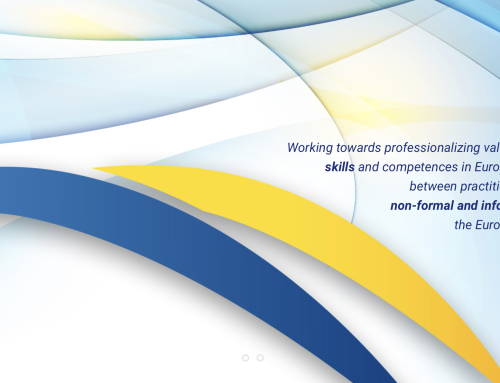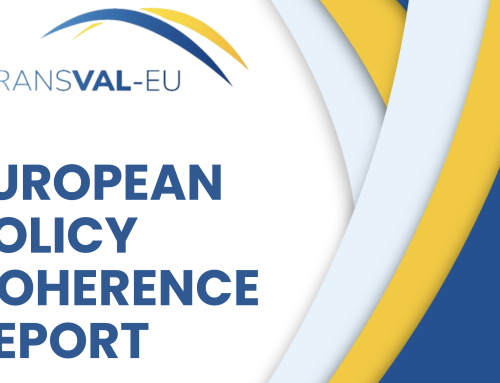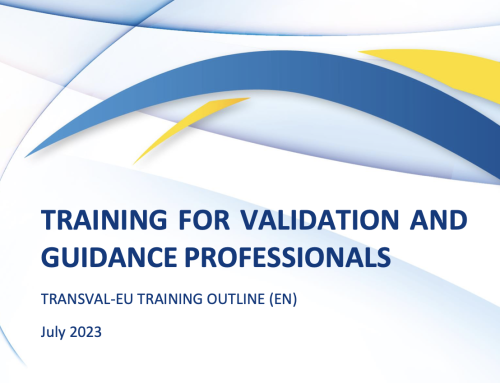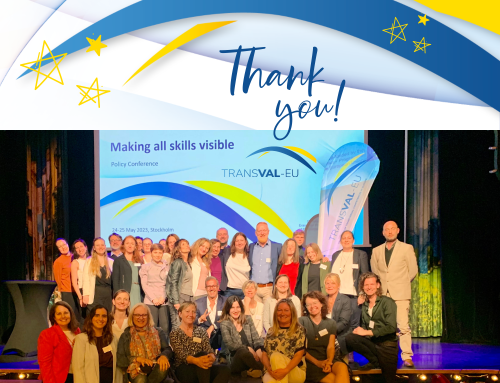Empowering low-skilled adults through the self-assessment of personal, social and learning-to-learn competence
The Council Recommendation of 22 May 2018 on key competences for lifelong learning defines the Personal, Social and Learning to Learn competence (PSL) as “the ability to reflect upon oneself, effectively manage time and information, work with others in a constructive way, remain resilient and manage one’s own learning and career. It includes the ability to cope with uncertainty and complexity, learn to learn, support one’s physical and emotional well-being, to maintain physical and mental health, and to be able to lead a health-conscious, future-oriented life, empathise and manage conflict in an inclusive and supportive context”.
As it represents a wide range of skills that are cross-cutting across jobs and sectors, and that can boost self-awareness and motivation, the PSL competence is particularly relevant for low-skilled adults. Despite this, it remains one of the least addressed key competences, both in the context of institutional priorities and in the definition of guidance, training and evaluation tools.
The MASTER project designed a process for guiding low-skilled adults in self-assessing their PSL competence and in the meantime contributing to increase the relevance of PSL competence among Adult Education practitioners and policy makers, as well as the opportunities for low-skilled adults to understand, develop and/or reinforce it. In Italy, the self-assessment experience was carried out by FORMA.Azione (www.azione.com), Adult Education provider located in the Umbria region and TRANSVAL-EU partner.
In order to set the testing, FORMA.Azione contacted and engaged the Public Employment Services (PES) and the social enterprises dealing with active labour policies at regional level: this cooperation allowed the recruitment of users with different characteristics and needs, and the activation of a permanent exchange with the PES practitioners with reference to the whole development of the self-assessment process.
The self-assessment tools that we used were developed and used by other providers and pedagogically adapted by the Roma Tre University, for the specific purpose of self-assessing the PSL competence.
The QPCC – Questionario di Percezione delle proprie Competenze e Convinzioni: a questionnaire based on the self-assessment of one’s skills and beliefs, and it’s generally used as tool for adults’ and youth’s guidance. The questionnaire explores four areas/dimensions and the reference factors: affective – emotional, volitional, cognitive, motivational.
The Competence Cards for immigration counseling developed for supporting the analysis of migrants’ social, personal, and technical and methodological competences. Each competence is illustrated by a picture on the front of the card, and described by a short sentence translated in seven languages. Using the cards is an interactive process involving the user and the professional in working together.
The beneficiaries involved in testing the tools were 40 – 27 men and 13 women – long-term unemployed and low-skilled, most of them with vulnerable backgrounds.
The QPCC has been administered to 17 adults owning sufficient language and elaborative skills, as well as abilities in abstract thinking, while the Cards have been used with 23 adults owning a low level of language and elaborative skills (regardless of their mother tongue), who needed a graphic support to understand better the meaning of the different competences.
Due to the COVID-19 pandemic restrictions, the tools were tested online through:
- a first session, addressed to small groups of users, was an introduction meeting;
- a second one was aimed at the individual self-assessment through one of the selected tools, with a support by the practitioners through PPT presentation in the case of the cards or scrolling together in the QPPPC questions;
- a third session allowed to report and discuss with the users the outcomes of the self-assessment, by sharing a report synthesizing their individual strengths and competences to be improved.
According to the feedback received from users, the experience of PSL self-assessment has been very relevant for the low-skilled adults participating in: it gave them the opportunity to be more aware of their abilities, to improve their self-esteem, to reflect on the possibility of learning from failures, to acquire relevant information for their future participation in reskilling paths and, as a side effect, to improve their digital skills related to the use of videoconferencing tools.
The role of the practitioners, directly or indirectly involved in the self-assessment, has been fundamental because they selected the most suitable tool for each user, adapted the common testing procedures to the specific individual needs, and provided targeted support during the whole process.
The experience of supporting low-skilled adults in evaluating their PSL competence, by using the self-assessment tools selected and adapted in the framework of MASTER, shows that it’s essential to work on PSL development, reinforcement and monitoring for adults’ empowerment, activation and awareness, so as to make them all able to concretely act as full citizens. In this regard, the adaptation of existing guidance, training and evaluation tools is a first important step, also considering that – at the present moment – in Italy PSL is not included in any formal education curricula nor taken into account in the monitoring of learning outcomes. And this is suggested also from the LIFECOMP, the European framework meant at establishing a shared understanding on the “Personal, Social and Learning to learn” key competence.




